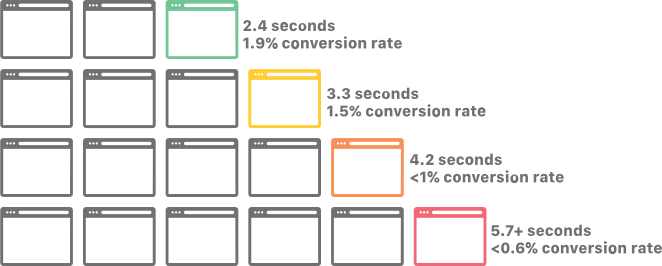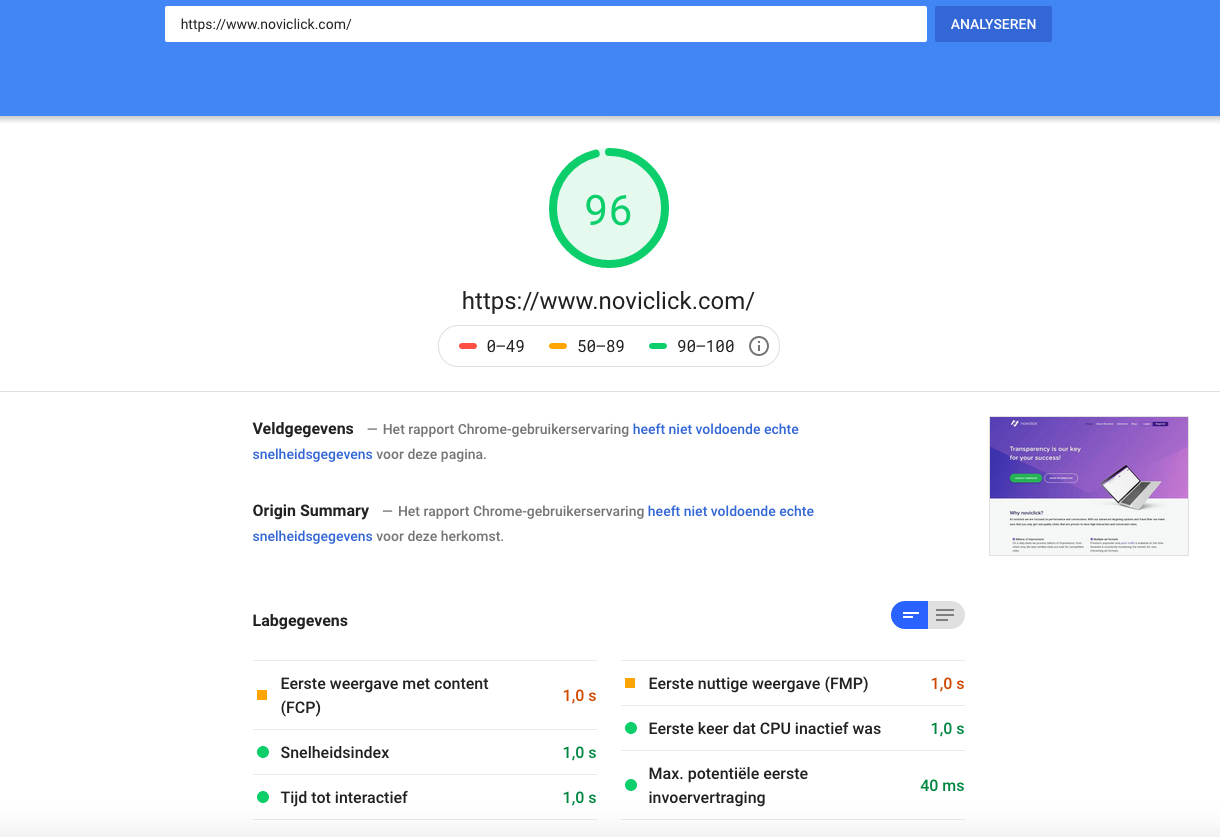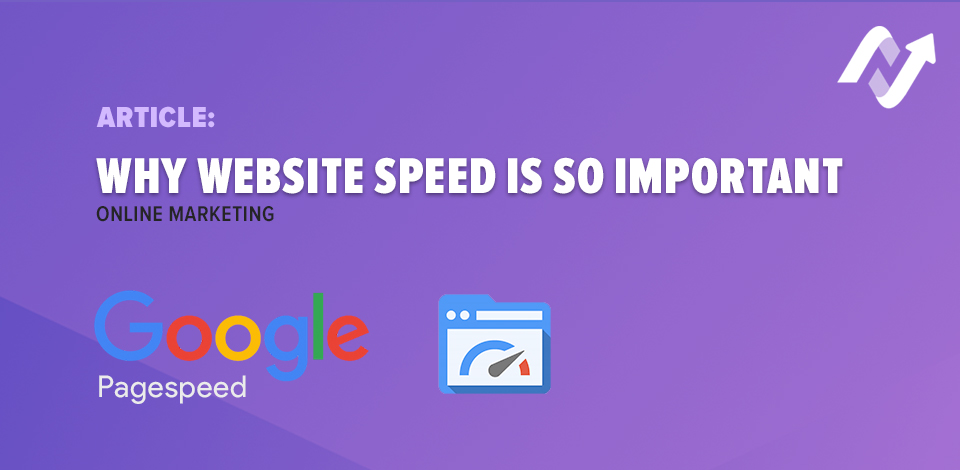We live in a society where everything has to go fast. This also applies to the speed of websites. Not only because this is pleasant for the person scrolling on the website, but also for your conversion rates. Curious why website speed is so important for your business? Then read on!
A slow website will cost you conversions
The speed of your website has a major influence on performance. For that reason, speed optimisation is one of the most important trends that you can follow. Users expect a website to be fast, especially now that we are becoming more digital and expect service to be delivered immediately and without errors. Does it take too long to load the website? Then there is a good chance that you will lose the user. Not investing in a fast working website literally means that you don’t care about your potential customers. So remember: a much faster competitor is just one click away from you. Therefore make sure your website is running at full speed and speed!

Fast websites are simply more user-friendly. Nobody wants to waste time on slow-loading websites. Several studies show that there is a connection between website speed and the conversion rate: the faster the website, the higher the conversion rate. Research by an AI healthcare software company, for example, found that a web page that loaded in 2.4 seconds had a conversion rate of 1.9%. With only +0.9 seconds (3.3) this had already dropped to 1.5%, with another +0.9 seconds (4.2) this was 1% (or, one-third less conversions!) And again +1.5 seconds (5.7), this was 0.6%. With a little more than a double loading time, the conversion rate was therefore more than 3 times lower! (source: Cloudfare)
The importance of mobile speed
Another important detail that should not be overlooked is mobile speed. Already in 2016, Google announced that it would attach more value to mobile versions of a website. Mobile speed is a part of this. Below a number of important figures regarding mobile speed:
- Google recommends keeping the mobile loading time below 2 seconds, but preferably within the second.
- More than half of the users (53%) tend to leave the website if the loading takes longer than 3 seconds.
- If your mobile website is fast, you will be rewarded. Research has shown that fast websites (5 seconds) have a bounce rate that is up to 35% lower and the average session duration is 70% longer than websites that load slowly (19 seconds).
How fast is your website?
A good tool to measure the speed of your website is Google PageSpeed Insights. The tool measures your website on a number of points and thus gives you a concrete overview with positive and negative points. You get a final score of 0 to 100 where everything below 50 is insufficient, between 50-89 on average and everything above 90 is good. You get separate results for your mobile or desktop website.

Another handy tool from Google is “Think with Google“, where you can compare your mobile speed with the rest of the world. You will then see how quickly your mobile website loads and how you score compared to others. At the bottom of the page you will receive personalised advice. If your website scores quite quickly, for example, you get the suggestion to compare your website speed with your competitors. If there is still much to be gained, you can enter a custom URL to see which pages slow down your website. You can also request a free report.
How do you increase the speed of your website?
There are a few quick tips you can use:
- Use a good quick web hosting
- Optimize images, make they aren’t bigger or higher quality than they have to be
- Limit the number of plugins
- Make use of caching
- Minify your JS and CSS files
- Minimize the number of redirects
- Use asynchronous resources when you can
- Activate compression (gzip) on your server

